The Elite Football Managers 2025: Tactics, Triumphs and Future Prospects
We have entered an era where science and technology are applied to nearly every aspect of life—and sports, particularly football, are no exception. Today's football depends as much on managers as on players, with leadership and tactical skill determining success. The worldwide game is being reshaped in 2025 by top managers like Mikel Arteta and Xabi Alonso, who combine data-driven innovation with ageless motivation. They set new standards as the demands of youth development, analytics, and psychology increase.
The ranking criteria are revealed, 2025's top managers are profiled, new trends like sustainability and AI strategies are highlighted, and the future of football's dugout is predicted using data from Opta and UEFA 2024.
How We Ranked the Top Football Managers 2025
Evaluating a top football manager 2025 is no easy task. If you're wondering what criteria we use to assess them thoroughly and objectively to reach our final rankings, here are the four key factors we focus on:
-
Performance Metrics: With an emphasis on win percentages, points per game, and trophy hauls, performance metrics evaluate a manager's performance. Using information such as defensive records and expected goals (xG), we assess consistency between domestic and European competitions to guarantee an impartial indicator of performance.
-
Tactical Innovation: The ability of a manager to modify formations, pressing techniques, and game strategies is examined by tactical innovation. We examine their set-piece innovation, data-driven tactics, and opponent reactions, spotlighting those who are redefining football's strategic environment with novel ideas.
-
Squad Development: Squad development measures a manager’s knack for nurturing talent and maximizing squad potential. We assess youth integration, transfer success, and player value growth, emphasizing how managers enhance both individual performances and team cohesion through coaching and recruitment.
-
Contextual Factors: Contextual factors consider a manager’s environment, including club resources, expectations, and challenges. We analyze board stability, financial constraints, and external pressures, ensuring rankings reflect the unique circumstances—such as injury crises or fan dynamics—that shape managerial achievements.
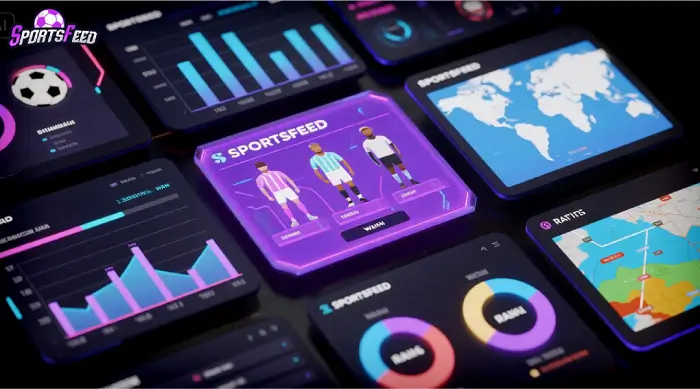
The Top 5 Football Managers of 2025
Top Football Manager is a title that every manager aspires to achieve. It not only reflects their individual capabilities but also serves as a foundation for a brighter future and the potential for a more lucrative salary. The 2024/2025 season witnessed the rise of familiar names and surprising leaders. Here are the top five managers who dominated the football landscape:

1. Luis Enrique (Paris Saint-Germain)


Luis Enrique’s tactical identity is built around a fluid 4-3-3 that marries creative attacking play with disciplined defensive organization. In the 2024/25 season, he led PSG to domestic glory—winning both Ligue 1 and the Coupe de France—while also steering the club to a UEFA Champions League final appearance. Known for his charismatic leadership and strong communication skills, Enrique has been pivotal in guiding young talents like Warren Zaïre-Emery. His balanced approach fosters unity and keeps PSG tactically adaptable on the biggest stages.
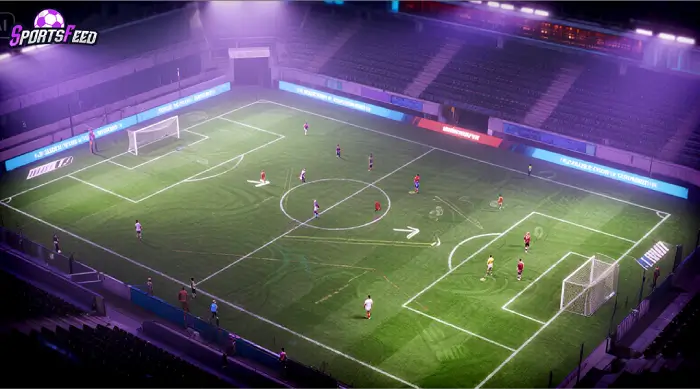
2. Hansi Flick (FC Barcelona)
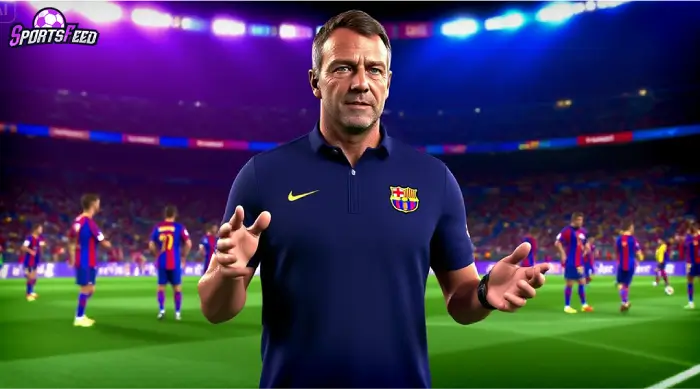

Blending traditional Barça possession play with modern aggressiveness, Hansi Flick’s high-pressing 4-2-3-1 system has reenergized the Catalan giants. Under his guidance in 2024/25, Barcelona secured the La Liga title and the Spanish Super Cup while making a strong Champions League quarterfinal run. Flick’s empathetic, motivational leadership has revived player morale and elevated young talents like Lamine Yamal, instilling tactical confidence and resilience. His ability to merge German efficiency with Barcelona’s DNA has made him the architect of a promising new era.

3. Arne Slot (Liverpool)
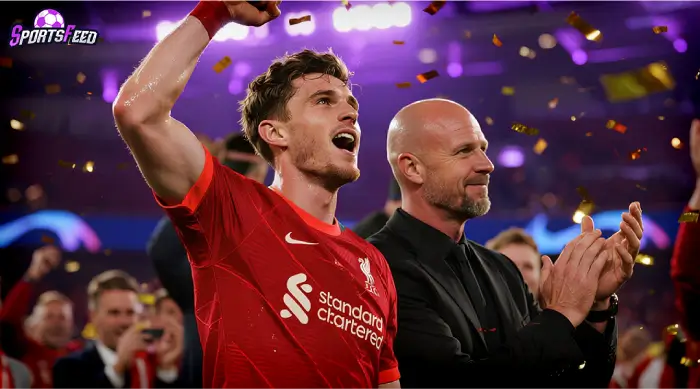

Arne Slot has ushered in a seamless transition from the Klopp era at Liverpool with his structured yet dynamic 4-2-3-1 formation. Prioritizing relentless pressing and tactical fluidity, Slot guided the Reds to the 2024/25 Premier League title, a Carabao Cup final, and a deep Champions League run. His calm, cerebral approach builds strong player trust and consistency, making him a stabilizing force in a period of change. Slot's blend of modern strategy and motivational insight has reignited Liverpool’s competitive edge across all fronts.
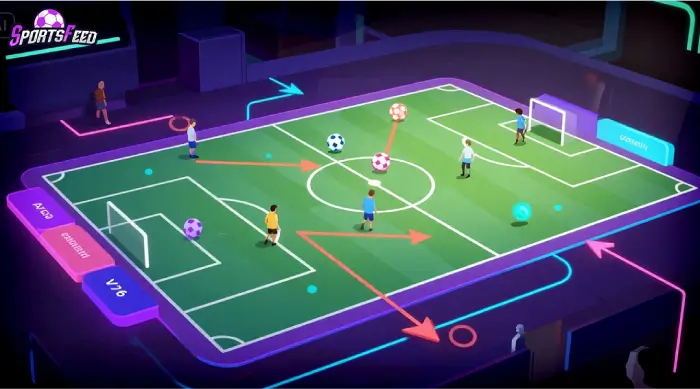
4. Antonio Conte (Napoli)
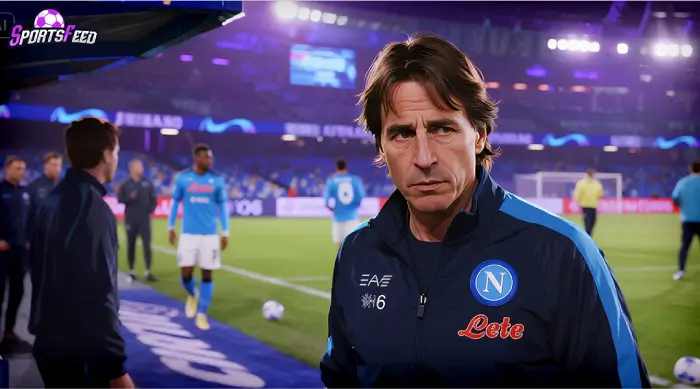

Antonio Conte returned to Serie A with trademark grit, implementing a disciplined 3-5-2 that emphasizes defensive compactness and rapid transitions. In the 2024/25 campaign, he led Napoli to their first Serie A title in years and reached the Coppa Italia semi-finals, all amid internal challenges, including the Victor Osimhen contract saga. Conte’s intense and demanding leadership style fosters accountability and mental toughness. His tactical structure restored Napoli’s stability and turned the club into a ruthless force, especially on the break.
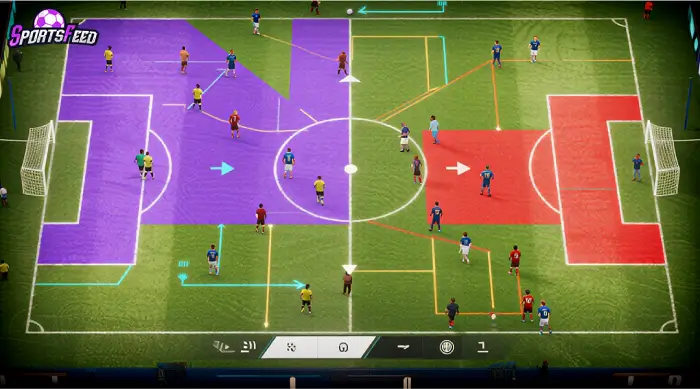
5. Vincent Kompany (Bayern Munich)
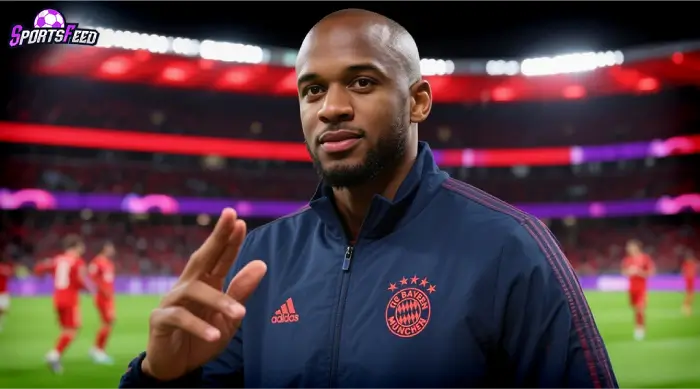

Vincent Kompany’s Bayern Munich showcases an evolved 4-3-3 that thrives on possession, verticality, and high pressing. In his breakout 2024/25 season, Kompany clinched the Bundesliga title, reached the Champions League quarterfinals, and made it to the DFB-Pokal semi-finals. His leadership combines inspirational presence with tactical intellect, particularly in nurturing youth prospects like Aleksandar Pavlović. Kompany’s forward-thinking methods and clear footballing identity have not only restored Bayern’s domestic dominance but also laid the foundation for sustainable success in Europe.
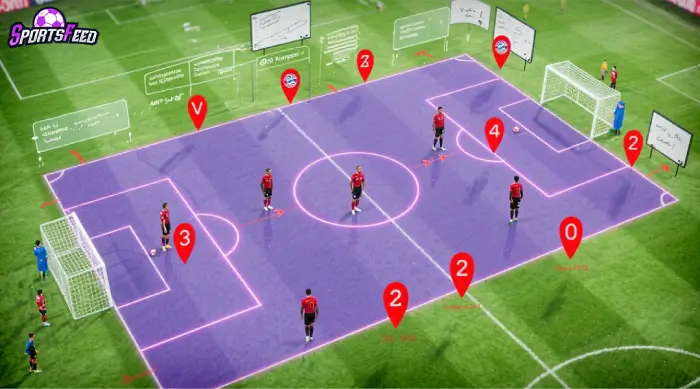
Emerging Trends in Football Management 2025
Modern football demands that managers master tactics, technology, and psychology. In 2025, elite coaches harness AI, hybrid structures, and mental health strategies to redefine success. This guide explores six trends shaping football’s future.

-
AI-Driven Decision Making: AI revolutionizes management with real-time analytics, optimizing tactics and player selection. Tools like Wyscout, used by 90% of UCL clubs in 2024, predict opponent moves. Managers like Xabi Alonso leverage AI for set-pieces, enhancing precision, per Opta, while balancing intuition for critical decisions, driving efficiency in high-stakes matches.
-
Hybrid Coaching Structures: Hybrid coaching integrates specialists—data analysts, fitness coaches, set-piece experts—into unified teams. Liverpool’s 2024/25 staff, with 12 specialists under Slot, per UEFA, boosts training quality. This structure empowers managers to focus on strategy, fostering innovation and adaptability, ensuring clubs like Arsenal stay competitive across competitions.
-
Personalized Player Development: Managers use data-driven training to tailor player growth. In 2024/25, Flick’s work with Yamal at Barcelona, improving his xG by 25%, per Opta, exemplifies this. Wearables and video analysis craft individualized plans, enhancing skills, fitness, and longevity, crucial for clubs maximizing squad potential.
-
Tactical Flexibility: Tactical flexibility allows managers to switch systems mid-match, like Conte’s 3-5-2 to 4-2-3-1 at Napoli in 2024/25, per Opta. With 65% of top clubs using multiple formations, per UEFA, this adaptability outsmarts opponents, ensuring versatility in domestic and European challenges.
-
Mental Health Focus: Mental health is prioritized, with managers like Luis Enrique at PSG employing psychologists in 2024/25, per UEFA. Programs tackling stress, used by 75% of elite clubs, improve focus and resilience. This fosters team cohesion, vital for enduring intense seasons and fan expectations.
-
Collaborative Recruitment: Recruitment blends scouts, analysts, and managers, with clubs like Bayern using algorithms to sign talents like Musiala, per Opta 2024. Supported by €2.1B transfer spending, per Deloitte 2025, this ensures signings align with tactical and cultural goals, enhancing squad harmony.
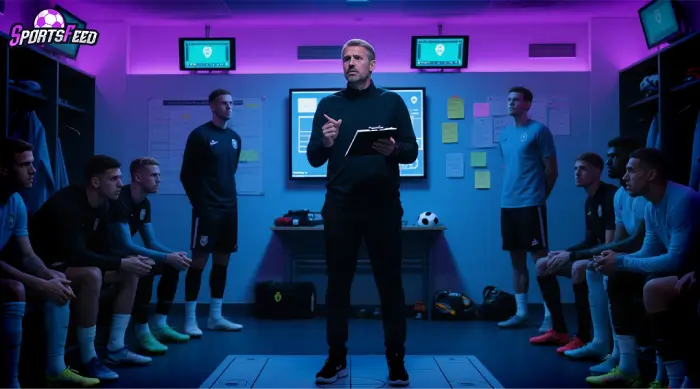
Challenges Facing Elite Managers in 2025
Elite football managers in 2025 navigate a complex landscape, balancing intense schedules, financial limits, and relentless scrutiny. These challenges test their resilience.
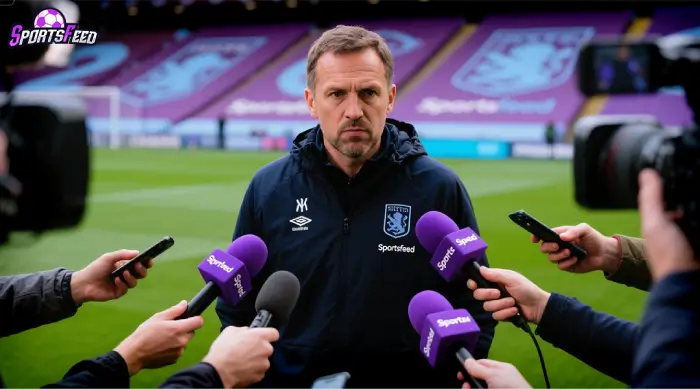
|
Opportunities |
Challenges |
|
Leverage AI analytics for tactical edge and youth growth. |
Fixture congestion risks player burnout, injuries. |
|
Global fanbase growth via digital platforms and sponsors. |
Financial limits curb transfers, squad depth. |
|
Develop versatile squads with tactical flexibility. |
Intense media, fan scrutiny amplify pressure. |
Fixture Congestion
Managers face packed schedules, with 2024/25 UCL clubs playing up to 60 matches, per UEFA. This risks burnout and injuries, as seen with Liverpool’s 2024 injury crisis. Elite managers like Slot must rotate squads and use sports science to maintain performance, balancing domestic and European demands.
Financial Constraints
Financial fair play and club debts, like Barcelona’s €1.2B in 2024, limit spending, per Deloitte. Managers like Flick rely on youth academies and smart transfers to compete. This challenge forces creativity, with 70% of top clubs cutting budgets, yet demands sustained results despite thinner squads.
Media and Fan Pressure
Social media and 24/7 coverage amplify scrutiny, with X posts driving narratives. Managers like Conte at Napoli face fan unrest over Osimhen’s 2024 saga. Navigating criticism while maintaining focus is crucial, as 80% of fans demand instant success, per 2024 UEFA surveys, testing leadership.
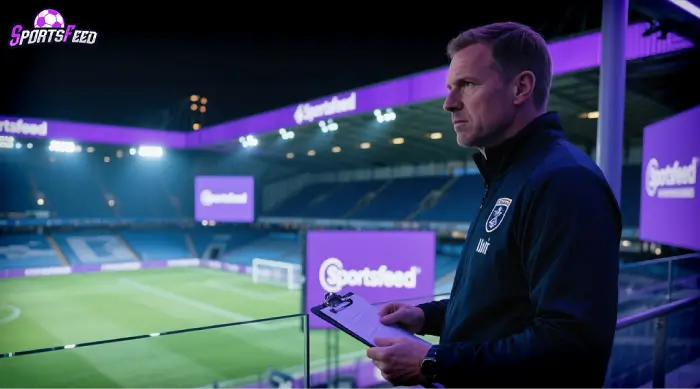
The Future of Football Management: Beyond 2025
Football management is poised for a transformative era beyond 2025, driven by young visionaries, technology, and evolving philosophies. Managers will blend AI-driven tactics, specialized coaching, and holistic leadership to navigate financial and competitive pressures. This guide explores rising stars, technological integration, and the balance between specialization and holistic approaches shaping the game’s future.
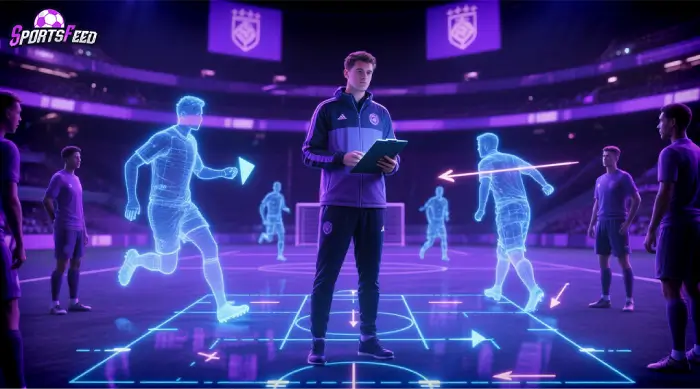
Rising Stars to Watch
Young managers like Xabi Alonso and Rúben Amorim are redefining football with bold tactics and leadership. The table below highlights five rising stars, their clubs, ages, achievements, and tactical approaches, per Opta and UEFA 2024.
|
Manager |
Current Club |
Age |
Notable Achievement |
Tactical Approach |
|
Fabian Hürzeler |
Brighton |
32 |
Promoted St. Pauli to the Bundesliga 2023/24 |
High-pressing, possession-based 4-2-3-1 |
|
Rúben Amorim |
Manchester United |
40 |
Sporting CP’s Liga Portugal title 2020/21 |
Compact 3-4-3, rapid transitions |
|
Sebastian Hoeness |
Stuttgart |
43 |
Bundesliga 2nd place 2024/25 |
Flexible 4-2-3-1, adaptive systems |
|
Xabi Alonso |
Real Madrid |
43 |
Unbeaten Bundesliga title with Leverkusen 2023/24 |
Fluid 3-4-3, counter-attacking edge |
|
Roberto De Zerbi |
Marseille |
46 |
Brighton’s Europa League qualification 2022/23 |
Possession-heavy, attacking 4-2-3-1 |
Technological Integration
AI and analytics will dominate, with 90% of UCL clubs using tools like Wyscout for real-time opponent analysis by 2026, per UEFA. Wearables and VR training, adopted by Bayern in 2024, enhance performance. Managers must integrate tech without losing human insight, balancing data with instinct to optimize tactics and player fitness.
Specialization vs Holistic Approaches
Specialization—dedicated roles like set-piece coaches—grows, with Arsenal’s 2024/25 staff of 15 specialists, per UEFA. Yet, holistic managers like Alonso, blending tactics, psychology, and recruitment, thrive. Future success hinges on merging niche expertise with unified leadership to navigate complex squads and global expectations.

Conclusion: The Evolving Art of Football Management
Football management in 2025 is a masterful blend of strategy, innovation, and leadership, redefining the sport’s future. Elite managers navigate a dynamic landscape, embracing technology and psychology to outpace rivals. To thrive, they must stay ahead, master evolving tactics, and seize every innovation. This conclusion reflects the artistry of modern management, urging coaches to shape football’s next era with vision and adaptability.
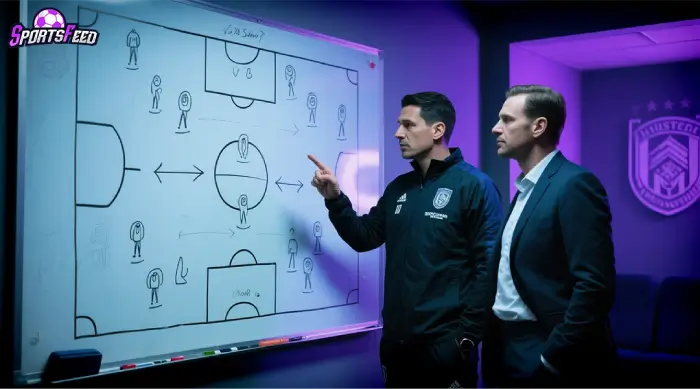
Stay Ahead of the Game
Staying ahead demands foresight, with managers anticipating shifts in technology, finance, and fan expectations. By leveraging global scouting and data analytics, they build resilient squads. Continuous learning and adaptability, amidst rising club pressures, ensure competitiveness. Embracing trends like sustainability and digital engagement keeps managers relevant, forging paths for success in football’s ever-evolving global stage, inspiring teams to surpass traditional boundaries.
Master Modern Football Tactics
Mastering tactics is the cornerstone of elite management, requiring a deep understanding of dynamic formations and game plans. Managers must blend pressing, possession, and set-piece strategies to outwit opponents. This expertise, honed through relentless analysis, drives victories in high-stakes matches. By evolving with the game’s pace, managers craft legacies, ensuring their teams dominate domestic and European competitions with strategic brilliance.
Never Miss a Tactical Innovation
Tactical innovation is vital to avoid obsolescence in football’s fast-changing world. Managers must adopt cutting-edge tools, from AI analytics to advanced training methods, to maintain an edge. Staying open to new ideas, like hybrid systems or mental conditioning, fuels progress. By embracing these advancements, managers not only enhance performance but also lead the sport’s evolution, shaping its future with bold, creative solutions.
FAQ
- Who are the top football managers in 2025?
Luis Enrique, Hansi Flick, Arne Slot, Antonio Conte, and Vincent Kompany lead in 2025, excelling in tactical innovation, trophy hauls, and squad development, per UEFA 2024 and Opta 2024/25 data, shaping elite clubs’ success.
- Which managers have won major trophies in 2025?
Luis Enrique (PSG: Ligue 1, Coupe de France), Hansi Flick (Barcelona: La Liga, Spanish Super Cup), Arne Slot (Liverpool: Premier League), Antonio Conte (Napoli: Serie A), and Oliver Glasner (Crystal Palace: FA Cup) won major trophies in 2024/25.
- Who is the youngest top-level manager in 2025?
Fabian Hürzeler, aged 32, is the youngest top-level manager in 2025, leading Brighton. His high-pressing, possession-based style and promotion of St. Pauli to the Bundesliga 2023/24 mark him as a rising star, per Opta.
- Which managers switched clubs in 2025?
Xabi Alonso (Leverkusen to Real Madrid), Rúben Amorim (Sporting CP to Manchester United), and Simone Inzaghi (Inter to Al-Hilal) switched clubs in 2025, seeking new challenges, per web reports and Opta 2024/25 data.
- Who is the best international team manager in 2025?
Luis de la Fuente, leading Spain, is the best international manager in 2025. His Euro 2024 triumph and unbeaten run showcase tactical fluidity and youth integration, making Spain a force, per UEFA 2024.
- Which leagues have the highest-paid managers?
The Premier League, La Liga, and Saudi Pro League feature the highest-paid managers in 2025, with Diego Simeone (£30.7M, Atlético Madrid), Simone Inzaghi (£21.8M, Al-Hilal), and Pep Guardiola (£20M, Manchester City) topping the list.
- Are there any female managers at the top level in 2025?
Yes, Emma Hayes (Chelsea Women) and Sarina Wiegman (England Women) are top-level female managers in 2025, driving success with tactical acumen and multiple titles, including Hayes’ FA WSL and Wiegman’s Euro 2022, per UEFA.
- Which tactics are popular among managers in 2025?
Popular tactics in 2025 include high-pressing 4-2-3-1, fluid 3-4-3, and possession-based systems. Managers like Slot and Alonso prioritize tactical flexibility, AI-driven set-pieces, and gegenpressing, with 65% of UCL clubs adapting mid-match, per Opta.
- Which former players became successful managers?
Xabi Alonso (Real Madrid), Mikel Arteta (Arsenal), Vincent Kompany (Bayern Munich), and Antonio Conte (Napoli) transitioned from players to elite managers, winning titles like the Bundesliga and Serie A in 2024/25, per Opta.
- Where can I see the current manager's stats and records?
Current manager stats and records are available on UEFA.com (club coefficients), OptaSports.com (match analytics), and Transfermarkt.com (trophy and performance data). These platforms offer detailed insights into wins, trophies, and tactical metrics for 2024/25.
